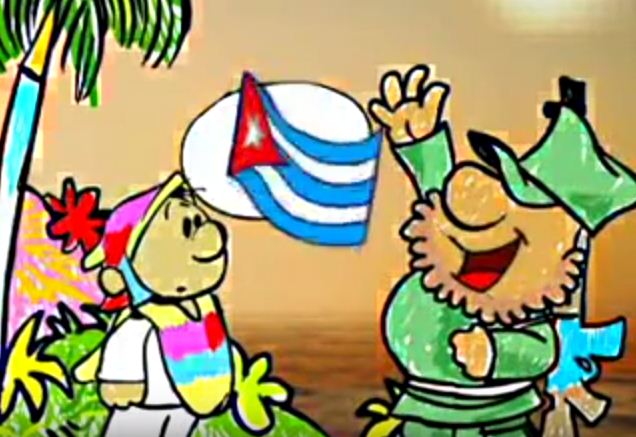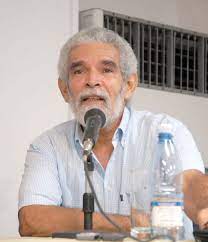That song was written by Argentinian political prisoners in the then general Agustín Lanusse´s dictatorship. They were incarcerated at the Rawson penal institution in La Patagonía. It was a song filled with optimism and trust before a different future for Latin America.
“The Moncada band was starting its musical band on that occasion, and we were lucky to meet Soledad Bravo, a singer of Spanish origin and based in Venezuela who was working on many Latin American folklore elements.” He said.
“In addition, Soledad told us it is a song that she used to listen from a woman at the Rawson penal institution, that woman about whom it was never known her name and sold sweets, and it was in one of the penal pavilions that woman used to sell sweets. That was the pavilion containing the political prisons linked to the National Liberation Movements.” Jorge Gómez Barranco, who is the director of the Moncada band, said.
“The old woman realized that Soledad sings political songs, and the related themes to the folklore, calls Soledad and he says “I want to sing a song to her.” He said.
Before that insistence, she listened to that song and when Soledad listened to it she realized that was an outstanding testimony because even badly sung as that old woman used to sing it, it was a powerful song. Soledad recorded it in a tape recorded and decided to use it.
“That song used to be composed by the then political prisoners, and no one knows exactly who of those inmates composed it.” Jorge Gómez Barranco said.
“The ´Chamamé a Cuba´ song had very simple chords, a very sticky melody, very simple regarding the Chamamé rhythm that was very close to the Zamacueca one, the one of that South American zone.” He said.
That song could survive and could be popular through the Venezuelan singer´s voice named Soledad Bravo, who included it into her repertoire. That song was warmly welcomed in Cuba and it was sung by Alberto Falla and Augusto Enríquez of the local the Moncada band.
That song became homage then paid to the local Commander-in-chief, Fidel Castro Ruz. There were some generations and it continued to be done, including a very good video clip, and it was shown for many years; that video lost its quality one day because its acetate component deteriorated a lot.
When Fidel Castro turned 80 years old, it was carried out a new video clip following the same characteristics of the previous one; however, it was digital. The recording is still shown through the new video, is the original one made by the Moncada band.
There were Argentinians revolutionary young people, who in the middle of the then repression composed the song entitled´Chamamé a Cuba´ that is a song for happiness and love in the middle of the tortures and the solidarity with Cuba.
By Carlos Serpa Maceira




